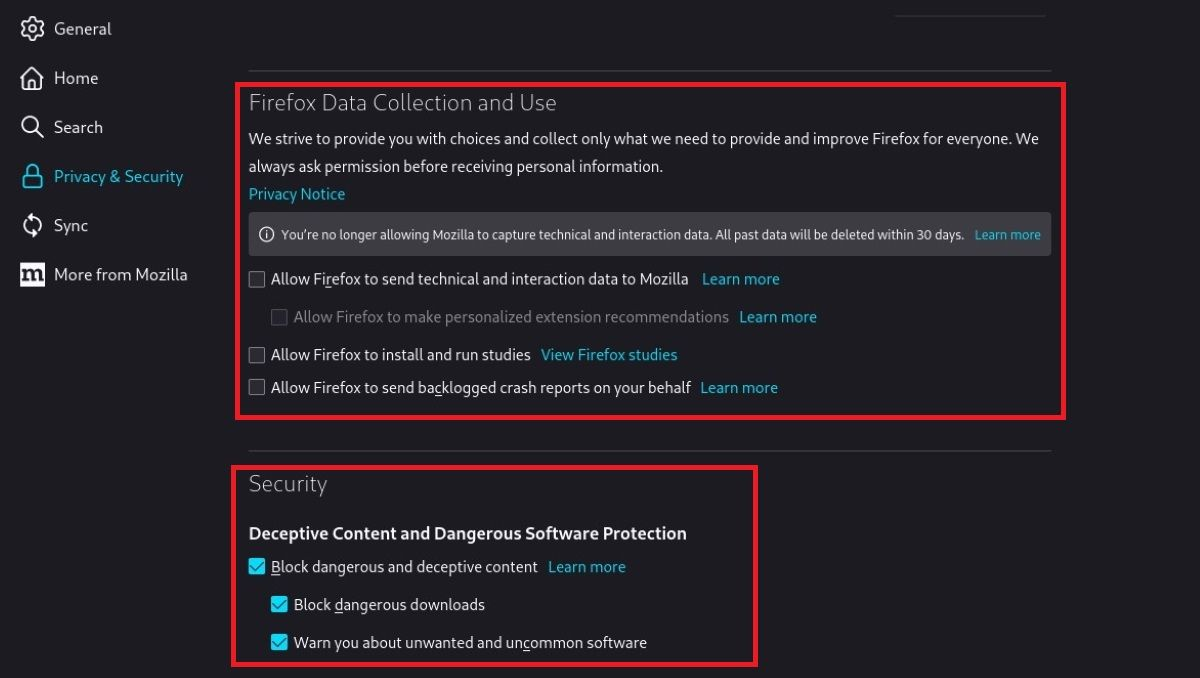Firefox search data collection marks a pivotal development in how Mozilla enhances user experience while upholding strong privacy standards. In its commitment to user privacy in browsing, Mozilla is implementing a new strategy to gather insights on how individuals interact with search features in Firefox. By analyzing search activity metrics, the team aims to tailor Firefox new features that resonate with users’ needs, ensuring a more personalized browsing experience. This data collection effort focuses on broader categories rather than individual searches, reinforcing its commitment to safeguard Mozilla Firefox privacy. As we navigate this innovative approach, users can rest assured that their personal search data is treated with the utmost confidentiality, allowing them to enjoy a safe and enriching online environment.
The new approach to data insights in Firefox signifies a strategic shift in how Mozilla gathers essential information about its users’ interactions. By employing anonymous measurement techniques, Mozilla seeks to enhance the functionality of its browser while placing user privacy at the forefront. This innovative method categorizes general search behaviors rather than detailing specific inquiries, which helps refine features while protecting individual anonymity. As the search landscape evolves, Firefox is dedicated to improving its platform with new capabilities that align with users’ interests while ensuring their data remains secure. With this initiative, Mozilla strives to balance user experience with a robust commitment to safeguarding personal information.
Understanding Firefox Search Data Collection and User Privacy
At Mozilla, we recognize the essential balance between innovation and privacy, especially when it comes to search data collection. Firefox’s new method involves categorizing search activities without infringing on individual privacy parameters. This system allows Mozilla to categorize information based on general topics—like travel or health—rather than collecting user-specific data. By employing advanced anonymity techniques such as OHTTP, Firefox ensures that your identifiable information remains confidential, helping to uphold our commitment to user privacy while enhancing your web experience.
As the digital landscape evolves, so too must our strategies for understanding user interaction with Firefox. By focusing on collective search activity metrics, we can discern popular inquiries and trends without compromising user anonymity. This nuanced approach permits us to tailor Firefox’s features and functionalities directly to user interests, enhancing user experience in the process. Thus, even as we delve deeper into search habits, Firefox users can browse the web confidently, knowing their personal data is always safeguarded.
Enhancements to Firefox’s Search Experience with New Features
The latest advancements in Firefox now include innovative features that adapt to user needs through intelligent recommendations. For example, Firefox Suggest propels the user experience by offering tailored content suggestions that align with current search queries. This enhancement not only enriches user engagement but also serves as a testament to our dedication to a more intuitive and efficient browsing experience. As we analyze categorized search data, we continuously re-evaluate which features will provide the most value in line with our users’ expectations.
With the introduction of these new features, Firefox is putting a premium on user engagement while maintaining privacy standards. By gathering high-level search metrics, we’re able to better understand what our users are interested in without actually monitoring their individual browsing history. For instance, if many users search for sustainable travel options, we prioritize that interest by refining the travel features within Firefox. This kind of insight not only influences product development but reinforces our commitment to enhancing the overall usability while respecting user privacy.
How Search Activity Metrics Drive Firefox Innovation
Search activity metrics are pivotal in how Firefox approaches innovation. By analyzing data from broad categories, we gain invaluable insights into user interests which, in turn, informs our product development strategies. This method streamlines our ability to launch features that resonate with users—like improved search functionality or better privacy options—without infringing on their individual preferences. Our commitment remains steadfast: end-users’ privacy is paramount, and the evolution of Firefox hinges on collective input rather than personal tracking.
This innovative approach not only enhances product relevance but also strengthens the Firefox community. When users feel that their needs and wants are driving Firefox’s feature enhancements, it cultivates a sense of trust and loyalty. Consequently, as we gather data on search trends, we refine Firefox to not just accommodate but indeed anticipate user requirements—leading to a more engaging user interface and satisfaction across the board. Ultimately, the efficient use of search metrics fuels our continuous dedication to privacy-focused innovation.
The Broader Implications of User Privacy in Browsing
User privacy in browsing is more vital now than ever, as digital habits shift and privacy concerns grow. Mozilla remains committed to making sure that user privacy isn’t just an afterthought but a core principle inherent in all its functionalities. By understanding the broader implications of how data collection may influence user behavior, we remain vigilant in protecting your information while still providing the tools necessary for an enhanced browsing experience.
Through our emphasis on user confidentiality and ethical data practices, Firefox positions itself as a leader in privacy-focused software development. Users can feel confident that their search activities, although collected in aggregate form, are treated with the utmost respect for their privacy. Ultimately, empowering users with knowledge about their privacy enhances browser loyalty while positioning Firefox as a trusted entity in a digital world increasingly focused on protecting individual rights and freedoms.
Adapting Firefox Features Based on User Needs
As we gather insights from general search activities, our focus sharpens on developing Firefox features that add real value to users. Understanding users’ search categories helps us refine tools that enhance productivity and engagement. For instance, if a significant number of users indicate a preference for educational resources or travel planning, we can prioritize enhancements in those domains. This data-driven approach ensures that every update is aligned with the real-world needs of our community.
By continually adapting Firefox features based on aggregated user needs, we ensure that the browser remains relevant and useful. This commitment to evolving user requirements not only optimizes the browsing experience but reinforces user trust. Our updates are not just technical adjustments; they reflect an extensive understanding of what users seek, whether for entertainment, information, or secure browsing. This helps Mozilla remain on the cutting edge of technological advancements while still standing firm on privacy and user security.
Firefox’s Approach to Secure Browsing and User Engagement
Mozilla’s approach to secure browsing hinges heavily on user engagement and trust. By prioritizing user privacy through enhanced search data collection methods, Firefox ensures that safety is the backbone of its operation. Our focus on secure interactions is complemented by the development of user-friendly features that cater to the unique demands of internet explorers. As we innovate, engagement practices become integral to solidifying users’ peace of mind, reinforcing the belief that online activities can be both rewarding and safe.
Enhancing user engagement while maintaining stringent privacy protocols signifies Mozilla’s dual commitment to innovation and security. Firefox’s methods for analyzing search data not only aim to improve user experience but also provide transparency about how information is handled. This assurance allows users to fully embrace the distinctive features of Firefox without the apprehension often associated with data collection by other browsers. Empowering users through clear communication about our practices is a key facet of ensuring that they remain engaged and satisfied.
Maintaining Confidentiality with Firefox’s Search Features
At Firefox, maintaining confidentiality is our topmost priority, especially concerning sensitive search data. Our new method of categorizing search activities does not compromise individual information, as all data remains anonymous and devoid of personal identifiers. This commitment ensures that even as we gather data for enhanced user experience, your privacy remains intact. As seen in our broad categorization system, sensitive searches are only represented under overall themes, shielding users from unwanted exposure.
The rigor with which we handle search data reassures users that their private inquiries remain confidential. This approach offers a safer browsing experience while helping us refine Firefox’s features according to aggregated interests. Additionally, users have the autonomy to control how much data they choose to share, reinforcing our philosophy that every individual has the right to opt-out of data collection initiatives. This dual commitment to confidentiality and user choice defines the Firefox experience.
The Future of Firefox Usability and Privacy Standards
The future of Firefox lies in our unwavering dedication to usability combined with robust privacy standards. As we gather more insights from search data, we will continue to evolve our product line to meet the dynamic needs of users. Our approach to understanding user engagement establishes a foundation for ongoing innovations that prioritize safety without compromising user experience. By fostering a culture of privacy and usability, Mozilla remains at the forefront of empowering users.
Looking ahead, advancements in Firefox will focus not only on refining user engagement through contextually relevant features but also on strengthening our privacy framework. We aim to set industry standards that adeptly safeguard user information while allowing effective product development. In doing so, we aspire to foster deeper relationships with our users, placing their needs at the helm of our innovations and underlining our commitment to making the web a secure and enjoyable space.
Frequently Asked Questions
What is Firefox search data collection and how does it impact user privacy?
Firefox search data collection refers to the new method Mozilla is implementing to understand user interactions with search functionalities in the Firefox browser while prioritizing privacy. This approach categorizes search queries into high-level topics without tracking individual user information, ensuring that personal data remains anonymous and secure.
How does Firefox collect search activity metrics while maintaining user privacy?
Mozilla Firefox collects search activity metrics by categorizing search queries into broader topics, such as travel or health. This data is collected in an anonymized way using OHTTP technology, which ensures that it cannot be traced back to specific IP addresses, thus maintaining high levels of user privacy.
What new features in Firefox are enhanced by search data collection?
The new approach to Firefox search data collection supports features like Firefox Suggest, which provides users with relevant content based on their searches. By analyzing search activity metrics, Mozilla can refine these features to better meet user needs while ensuring that individual browsing preferences are not disclosed.
Can users opt-out of Firefox search data collection?
Yes, Firefox users can opt-out of sending any technical or usage data. Additionally, the browser does not collect category data when users are in Private Browsing mode, allowing for complete confidentiality during those sessions.
What categories does Firefox use for search activity data?
Firefox categorizes search activity into various high-level themes including animals, arts, business, health, travel, and more. This categorization helps Mozilla understand the types of searches users are performing without revealing personal search items.
How does the new Firefox search data collection method enhance user experience?
The new Firefox search data collection method enhances user experience by providing insights into popular search topics, allowing Mozilla to prioritize and develop features that resonate with user interests. As a result, users benefit from a more tailored browsing experience, all while ensuring their privacy is upheld.
Is Firefox’s search data collection compliant with privacy regulations?
Yes, Firefox’s search data collection methods prioritize user privacy and are designed to comply with existing privacy regulations. By anonymizing data and avoiding personal identifiers, Mozilla ensures that user privacy is maintained in their data collection processes.
What security measures does Firefox implement for its search data collection?
Firefox employs OHTTP technology to anonymize search activity data, making it impossible to link collected metrics to specific users or IP addresses. This commitment to security is central to Mozilla’s focus on user privacy in browsing.
| Key Point | Details |
|---|---|
| Innovation and Privacy | Mozilla combines innovation with user privacy, making it a core principle of their development process. |
| Firefox Search Data Collection | A new method of measuring search activity that categorizes searches without identifying individuals, ensuring user privacy. |
| Firefox Suggest | New feature in Firefox that recommends content based on user search queries to improve the search experience. |
| Measurement Categories | Searches are categorized into high-level groups: animals, arts, autos, business, career, education, fashion, finance, food, government, health, hobbies, home, inconclusive, news, real estate, society, sports, tech, and travel. |
| User Control | Users can opt out of technical or usage data collection, and no data is collected in Private Browsing mode. |
| No Impact on Browsing | The new data collection method does not change the user experience or browsing behavior. |
Summary
Firefox search data collection reflects Mozilla’s commitment to enhancing user experience while maintaining user privacy. By categorizing search data without linking it to individuals, Firefox aims to improve its features based on actual user needs. This approach not only preserves confidentiality but also ensures that the innovations introduced align with users’ interests. Users can stay in control of their data and enjoy a tailored browsing experience, further upholding the values of security and privacy that define Mozilla.



